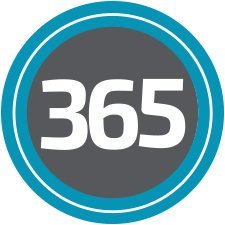
Majid alDosari
@msdtechcode
interested in scientific computing and data science. May also be somewhat of a python zealot.
You might like
with module change autorun, the ability to use your own editor, and exporting to scripts, @marimo_io has merged data science tooling with software engineering tooling!
The feedback loop you get when using @marimo_io is insane! I recently had the deepest feeling of being in the zone when trying to solve a data analysis problem. Thank you @akshaykagrawal. I consider this to be a *MAJOR* development in the @PyData stack. (@DVCorg last mjr dev)
I'm seeing a maturation of the @PyData stack. env mgt, project mgt, notebooks, data pipelining, distributed compute, viz, dataframes, tensor computation, are the "baseline" problems that seem to be essentially solved to me. what else is there??
best @PyData tooling progress i've seen in ~24 months, @marimo_io , @quarto_pub , @mitsuhiko (rye), @astral_sh (ruff), @prefix_dev (pixi).
Why do so many mathematicians insist on pdf renders of latex some 30+ years after the www?
wow so #nix is 20 years old and it went under the radar of VM *and* containerization and devops eras! seriously, #nix had the right fundamentals from the start!
is it time to merge the concepts of containers and virtual environments?
What's the difference between virtual environments and containers these days? Containers have become so thin. An isolated file system?
Theory: scientific computing benefits more from software engineering advances than purpose-built tools. Purpose built: #Rlang, #Fortranlang, #JuliaLang . General but used in scientific computing: C, #pythonlang, ... And now it looks like #rustlang will take more from Julia.
i don't think Jinja (arbitrary templating) and YAML (structured data), together, in the same file, make sense.
'mutable data' is an oxymoron: data are immutable by definition, but data /structures/ can mutate.
don't use #python #objectoriented inheritance mechanisms to create a taxonomy; use it to *compose*.
why, when subclassing (general>specific...supposedly), do you have to (explicitly) write `super().method()` and trigger the general in your specific method? i think the default should be that your general code applies. #Python #objectoriented
solution to "a monad is a monoid in the category of endofunctors" euclideanspace.com/maths/discrete…

from dataclasses import dataclass as _ dataclass = lambda *p,**k: _(*p, frozen=True, **k) dataobject = lambda *p,**k: _(*p, frozen=False, **k) datastruct = attrib2val = dataobject # ? @PyData
it looks like python metaprogramming facilities (whether built-in or hacked on) are the connection to a more formal way of programming (choose your formalism). can't decide if having a 'tacked on' 'formal layer' is a good or bad thing. might lead to decorator overload. @PyData
with today's adv. linters and IDEs, why wouldn't the following scenario be possible? novice: wow python is easy! > pylist=[i for i in range(♾)] > nplist=np.array(pylist) numpy: ugggh mutable, list of (untyped) objects clippy: looks like you should just use np.range @PyData
United States Trends
- 1. GTA 6 11.4K posts
- 2. GTA VI 18.8K posts
- 3. Rockstar 48.1K posts
- 4. Antonio Brown 4,769 posts
- 5. GTA 5 7,874 posts
- 6. Nancy Pelosi 121K posts
- 7. Rockies 3,901 posts
- 8. #LOUDERTHANEVER 1,510 posts
- 9. Paul DePodesta 1,968 posts
- 10. Ozempic 17.1K posts
- 11. Justin Dean 1,389 posts
- 12. GTA 7 1,157 posts
- 13. Grand Theft Auto VI 40.6K posts
- 14. Grisham 1,770 posts
- 15. Elon 394K posts
- 16. Luke Fickell N/A
- 17. $TSLA 54.9K posts
- 18. RFK Jr 28.8K posts
- 19. Oval Office 42.1K posts
- 20. Pete Fairbanks N/A
You might like
Something went wrong.
Something went wrong.






























































































